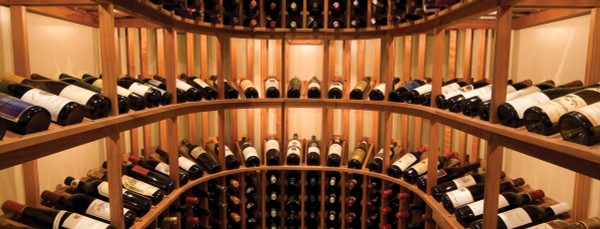The allure of a vintage wine is irresistible to a hopeless romantic or pragmatic wine collector. To the romantic, the bottle is not only filled with well-aged wine, but with history. With the year one was born, or was married. A wine could literally be as old as one’s love for their spouse. To the wine collector it is a good investment, if not just a good glass of wine. The many appeals of bottle aged wine send imaginations and bank accounts wild. Though not everyone knows how or why bottle aging a wine is important. Keep reading to find out why bottle aging fills a glass with magic.
Though the appeal of bottle aging is endless, the bottles that benefit from aging are not. Only 1% of wines are meant to be aged. Reds take the majority, while whites rarely benefit from aging. The majority of reds are meant to be drunk young, as well. This means consuming within 5 years of bottling. Anything beyond this and the wine will actually start to deteriorate. Only certain premium reds benefit from aging. A good rule of thumb that we learned from Vinepair.com is to age bottles of red that are priced at $30 or more. And even then, the wine will not benefit if not stored properly.
Storing your wine, or cellaring, is the most important part of aging the wine. Without the right conditions, your wine will go bad. It is important store your wine in a dark cool place. Keeping UV rays out of your wine is important, as they can damage wine in the same way heat can. Be sure to store your wine at around 55 degrees Fahrenheit. Warmer condition actually speed up the aging process and break down the wine quicker, which leads to deterioration. The cooler you keep your wine, the longer it will last.
Another key component to aging wine is often forgotten. Humidity plays a big part in the integrity of the cork. Not enough humidity and the cork will dry out fall apart, leading to a leaking bottle. Too much humidity and the cork can begin to grow mold, which can then be introduced to the wine. And always store wine bottles on their side, as this keeps the interior of the cork from drying out.
Now that we know how to bottle age wine, let talk about why. Bottle aging wine helps to smooth out the tannins, which leads to a smooth and silky texture. Because of this, high tannic and fruit forward wines can benefit greatly from aging. Aging introduces layers of flavor and complexity that would not be present in a young wine. Aging can add more fruit, earthier, and deeper flavors. The bouquet of the wine can become more complex as well. This over all complexity is due to chemical interactions in the bottle over time that break down and rearrange molecular bonds.
Maybe it is the rarity of a well-aged bottle of wine that attracts the romantics. At any rate, with all this knowledge, let’s hope bottle aged wines become less rare in your cellar.


